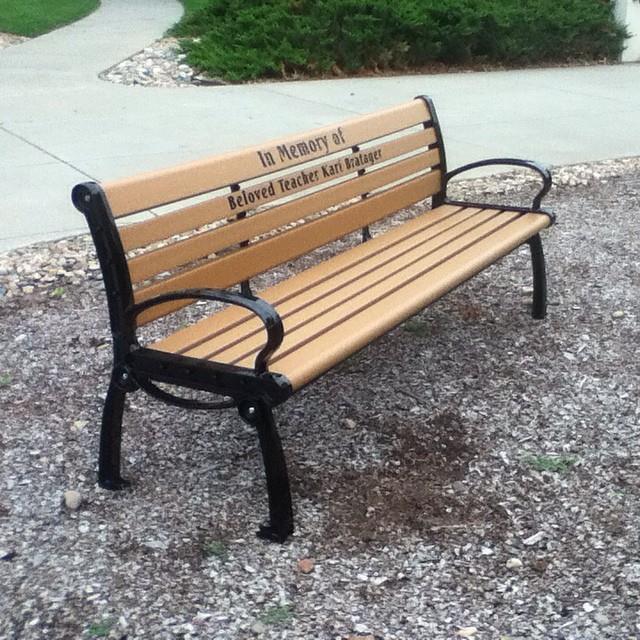This is a continuation of an article about Sexual Anorexia by Kari Bratager. You can access the first part here. Kari was a leader at Where Grace Abounds and did some writing and speaking in that capacity. She received her Masters in Counseling from Denver Seminary, taught at a preschool and was a Zumba enthusiast. She lost her fight with cancer in the fall of 2014.
What is the difference between healthy abstinence and sexual anorexia?
Sexual Anorexia may have a component of abstinence, but it differs in that all of the person’s energy is focused on avoiding sex or intimacy at all costs. In general Sexual Anorexia is an addiction that shuts down a person’s ability to truly love others or God. Sex and Love Addicts Anonymous claims that “anorexia is a busy addiction. It consists of not doing something and not doing something and not doing something. Not trusting. Not committing. Not surrendering (quoted in Carnes, 1997, p.55).”
This affects all relationships creating an unhealthy situation in which the person may shut down on all forms of intimacy with the opposite sex or the same sex. This also tends to deteriorate one’s relationship with God. If someone is unable to trust others enough to enter into healthy relationships they will probably be unable to trust God enough to be intimate with him. Additionally when one’s whole mental energy is put into avoiding sex there is no energy left for that person to engage God.
Control
The person who is merely abstaining from sex until marriage will probably have a different experience and differing motives. This person may be abstaining in order to please God in whom they have built a trusting intimate relationship. Whereas the sexual anorexic performs these same actions in order to control God, whom they fear. Secondly, the person abstaining from sex will still have relationships that are appropriately intimate in emotional, spiritual, and intellectual ways. The sexual anorexic will usually avoid any relationship that becomes too intimate in any of these forms.
Finally, the person who is abstaining from sex in a healthy manner is not preoccupied by sex on a normal basis; although these thoughts may enter their mind, they do not consume the majority of the person’s time and energy.
How healing begins
The path to recovering from sexual anorexia can vary from person to person. One cannot recover from sexual anorexia or any other sexual addiction unless they are in a safe place where they can trust those around them. It is also beneficial that the person be involved with a group of people who struggle with similar issues. They can start to learn healthy ways of relating to others, and start to feel like there is a place where they belong. Because intimacy has usually been the one thing that sexual anorexics dread most, it is important that they find a place where they can start to build appropriate intimacy with other people.
First, many sexual anorexics work hard at making sure that they don’t have any needs, either emotionally or physically, since these needs may be seen as weakness. As a result many sexual anorexics need to learn how to nurture themselves physically and emotionally. This can include eating healthily, using lotion on a regular basis, taking a bubble bath, getting a massage from a trained massage therapist, exercising, doing something pleasurable for oneself, and getting together with friends. Because many sexual anorexics are overly sensitive to touch and may have a fear of intimate touch, such things as receiving hugs, putting lotion on one’s own arms and legs, and working with a massage therapist who understands people’s ambivalence towards touch can prove extremely important.
A Healthy Lifestyle
Learning to accept appropriate touch from another person, while creating healthy boundaries may be very important in helping a person not only nurture themselves but to also reconnect with their own sensuality. Other helpful hints are taking time to meditate or be in silence for a few minutes a day, stretching, using aromatherapy soaps, oils, or perfumes, and/or enjoying the beauty of those things that are around us.
Finally, it is important to realize that the steps offered above are merely just the beginning of a process that may take a while to work through completely. If this sounds like you or someone you know, there is help available to you. Seek out a support group, a trusted pastor or a trained counselor that can help you work through these issues.
References
Carnes, P. (1997). Sexual Anorexia: Overcoming sexual self hatred. Center City, MN: Hazelden
Resource List
Carnes, P. (1989). Contrary to Love: Helping the sexual addict. Minneapolis, MN: CompCare.
Carnes, P. (1991). Don’t Call it love: Recovery from sexual addiction. New York, NY: Bantam Books.
Carnes, P. (2001). Out of the Shadows: Understanding sexual addiction. Minneapolis, MN: CompCare.
May, G. (1988). Addiction and Grace. San Francisco, CA: Harper & Row.



Awesome Blogpost thank you for sharing.